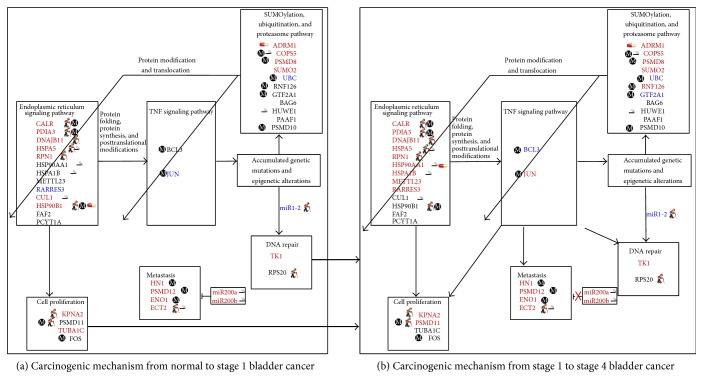Figure 7.
The carcinogenic mechanisms from normal to stage 1 bladder cancer cells (a), and from stage 1 to stage 4 bladder cancer cells (b). When the accumulated genetic mutations and epigenetic alterations lead to the dysregulation of the TNF pathway in inflammation, the accumulated misfolded proteins in the ER pathway induce cell proliferation in stage 1 bladder cancer (a). The regulations of ER and TNF pathways are adaptive to the accumulated genetic mutations and epigenetic alterations through the SUP pathway. The progression of DNA repair and cell proliferation in stage 1 bladder cancer ultimately results not only in the repression of miR200a and miR200b during metastasis, but also in the regulation of the TNF pathway to metastasis, cell proliferation, and DNA repair in stage 4 bladder cancer (b).

